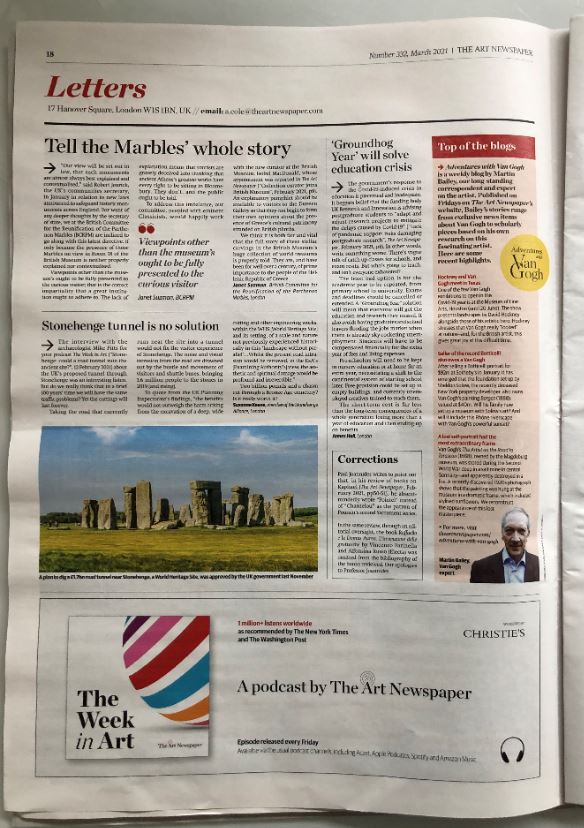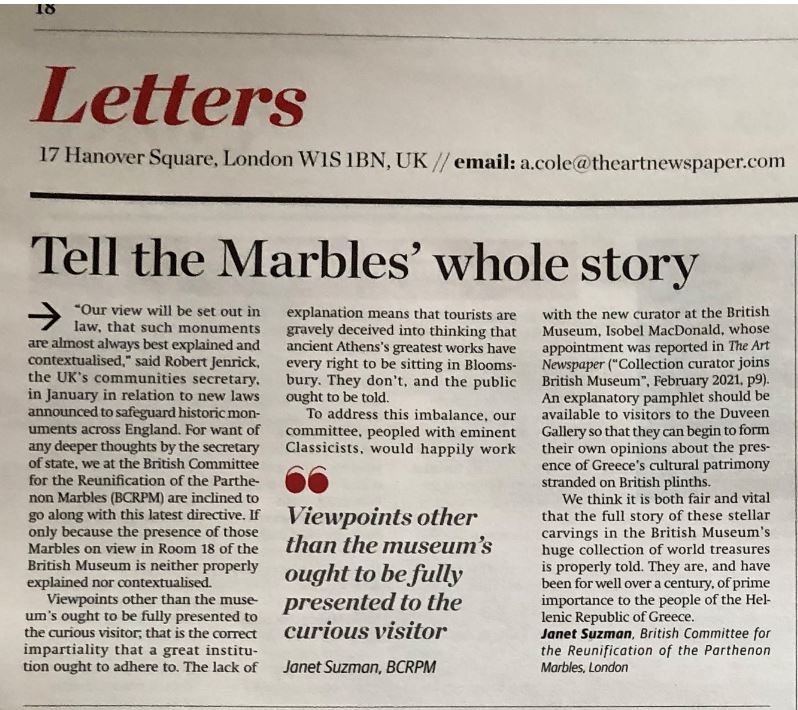March 2021
On Tuesday 02 March, a four hour 'History Matters' Conference Webinar took places under the auspices of the Policy Exchange and culminated in the final session, a conversation between Sir Trevor Phillips and Oliver Dowden, Minister of Culture, Media and Sport.
There were speakers during the webinar that highlighted the value of listening to the voices, bringing in the viewpoints of those voices to the display materials of museums and institutions. Oliver Dowden howerver was very robust in asking cultural instittiions not to bend to any pressure groups but to cotinue to preserve Britain's rich heritage: to 'conserve and retain', 'to own our past and enhance collective understanding'.
And yet, the question always remains the same. Why would a nation request the return of artefacts to the country of origin if it did not think it had a valid reason? And as we continue to live in a challenging 21st centrury, we also continue to reflect on the merit of such requests, on a case by case basis.
In this month's The Art Newspaper, a letter by our Chair Dame Janet Suzman, which continues to urge the British Museum to listen to the voices and to spell out the history of the collection in Room 18, so as to allow the visiting public to make up its own minds too.
In her letter, Janet concludes:"We think it is both fair and vital that the full story of these stellar carvings in the British Museum’s huge collection of world treasures is properly told. They are, and have been for well over a century, of prime importance to the people of the Hellenic Republic of Greece."
Respect.
To read the letter you can follow the link herealso. Below this month's The Art Newspaper's Letters page.

